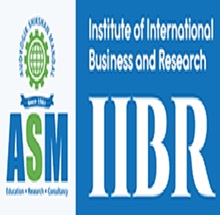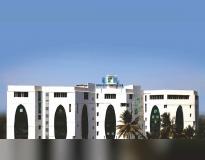The Employability Conundrum: Understanding The Skills-Job Gap
By Prof JA Kulkarni
The emergence and impact of globalization of economies, resulting in to a complex combination of developed & not so developed markets and related technologies have put tremendous strain on ‘employability’ of the youth across the world. Not so far in the past say just before 10-15 years it was possible for graduate engineer or one with business management studies could find a reasonably good job with prospects for career growth.
The skill gaps between business requirements and as available from university pass outs are terribly out of phase resulting in serious issues of ‘Employability’ for freshers from colleges. At every stage of formal education starting from school level the need for catch up with current levels of competencies has reduced the students (as also the education Providers) as mere robotic creatures picking up things which creates a rat race for employability.
‘The Employability Conundrum’ – Reality Check
Initially, the number of colleges and number of students studying Management were very small in numbers & industry requirements were also not so rigorous since they were under regulatory restrictions on Products, Technology and Markets. Perhaps there was no big gap in the expectations between the Industry requirements and B-School pass outs. This was also supported by many industry executives providing interventions at these B-schools as guest faculty since they were also comparatively free on account of lesser work pressure then unlike the maddening rush at the work place for these executives.
It was around 1991-92 along with the liberalization & globalization of Indian economy a sudden rush of adrenaline was felt amongst Industrial units to look for newer technology for their products & processes and simultaneous onslaught of foreign companies wanting to establish manufacturing units in India with their globally competitive technology & processes in Business Management. Many major industries from elsewhere in India & abroad shifted their bases to Pune which promised skilled & educated manpower, adequate Infrastructures and nearness to major markets.
The above situation called for a major metamorphosis in the Management Education & technical Institutes within a span of 5-10 years (By the year 2000.) The number of B-Schools in Pune alone increased from mere 10-12 to nearly 75-80 schools. Today, we have nearly 250 B-Schools in & around Pune. There was an utter chaos and mad rush for admissions to these B schools, which in turn had to work very hard to provide the necessary additional infrastructures and expert faculty in teaching specialized subjects newly introduced to meet specific expanded requirements from industries around, This was also a great challenge and opportunity for quite a few who wished to exploit the Industry requirements of management trained freshers as a commercial proposition and made huge investments in establishing B-schools at every available location.
The above resulted in a major shift in the approach towards Higher Education from the State & the Central authorities. The Regulating agencies such as the UGC, AICTE, DTE had to frame newer & newer standards of Certification & approvals for B-Schools (& Technical Institutes) who started mushrooming all around.
Around the same time came the onslaught of greater numbers of IT & ITES units establishing their operations in India. The requirement of training students in IT & ITES areas also became urgent and B-schools had to expand & establish necessary Infrastructure & Teaching & training facilities at the campus.
Between 2000 and 2005 Maximum number of B-schools came in to the Higher Education area or the existing schools expanded capacities to accommodate the exponentially increasing requirements from IT & ITES Industries.
In the process what gathered momentum amongst all stake holders in higher education especially in the parents & students is to exclusively focus on opportunities for higher education towards IT/ITES areas, which needed basic operational knowledge of IT Software & Hardware (mostly software). Courses such as BCA, MCM, MCA were developed and added to the course options at many B-schools.
This attraction to opt for IT related Courses, which does not need special exposure to conventional science & arts subjects and other management related areas such as HR made students develop themselves as specialists in IT/ITES related subjects and literally less or no focus on general development in Business Management Subjects. In fact, operations such as BPOs (call centers) did not even insist for graduate level education where as a 12th standard pass could work in a BPO getting salary and perks more than the graduates & post graduates in Science/arts and social sciences. This had a cascading effect that the parents and students greatly ignored areas science, arts & mathematics and curtailed their potentials to mere bench work type careers in BPOs.
Somewhere along the line, there has developed a disconnect between the real education for long term career and the traditional ways of teaching, testing & supporting the youth for growth as a capable employee of an organization. What started as an enormous opportunity has become a short cut for earning money and spending lavishly since you get highly paid for your physical (not so intellectual caliber) exertion and at an age when perhaps one is not grown up enough to understand terms such as long-term career growth & potential.
The immediate & long-term impact of this is loss of respect for ‘values’ so essentially required for personality growth and maturity levels for overall responsibility. Besides getting more than adequate money at comparatively younger age, has led to disturbed family life and the parents not being in a position maintain proper communication with their so-called employed wards, who have by then become victims of habits non-congenial to harmonious family life.
Now considering the above as a very small aberration in the overall provision for higher education, the influx of world class management processes in many MNCs, is demanding world class levels of capability in its employees from entry level to senior executive levels.
This is in contrast to the expectations of the students in B-schools who expect to get better paid (as the BPO employees) and consider business management as mostly physical work- Time Keeping –Uniforms- & presentations skills, with little or no focus on knowledge of the Functions, ability to conceive & comprehend situations & issues in business (This tendency is quite obvious through reduced interests in class room lectures, assignments, tutorials and internal examinations – considering somehow passing the university exam as great achievement & a passport for employment/employability.). The parents of these wards have little or no understanding of consequences of such attitudes, and in some cases they have resigned to the fate and end up supporting their wards for the fear of family discord.
Impacted by the load of compliance to regulatory requirements from State & central agencies which leaves hardly any time for the top management of B-Schools, to look into qualitative aspects of education in their institutes. Subject to intense competition to attract students & faculty has made the Management worry more about admissions & compliances and unable to concentrate on issues arising out of dwindling attendance & attention of the students in the teaching programs. What takes priority is maintenance of various records faculty employed, infrastructural provisions, (besides class rooms & library-gym, lifts & superior canteen facilities) for compliance essentials. They do not necessarily wish to know the ground realities bothering the Institutes management who in spite of best efforts are not feeling comfortable about achieving employability credibility for all the students. Incorporating practices such as Question Banks, Faculty notes on the Syllabus topics only is the last resort, hoping that students at least make use of these additional props to pass through the university Examinations, This definitely falls short of the objectives of the management to continuously improve the quality & capability of the outgoing students from their institutes, perhaps they are rendered helpless because much of their time and energy gets spent on answering compliance questions and attract students for running regular classes for the subsequent academic year.
Thus, the emerging picture of higher education which is the stepping stone for students to aspire for opportunities for employment in industries of choice and a promising career ahead, looks extremely disheartening and disturbing.
The parents from their side only can expect that their wards who have gone beyond the value reach of the family expectations, of becoming formidable citizen and a promising perpetuator of higher individual & cultural values with adequate knowledge in the field of studies chosen and successful in career& life in general. But the realities do not offer any prospects for such hopes. Their children spending more time in loafing around with friends, less interested in studies, attracted to glamorous life styles, losing all resemblance to family values contrasted by arrogance& disrespect.
The Teaching staff & the mentoring staff at the institutional level get disappointed, since the students are not amenable to any knowledge sharing exercises through class room studies or assignments /tutorials and even bunking classes in preference to entertainment & fun fare.
Thus, the so-called Gurus feel frustrated that they have no disciple wanting to be tutored on structured knowledge sessions and exercises to inculcate values & soft skills considered so necessary for the students’ future career prospects. Their jobs are reduced to mere observers of abnormal absenteeism, non-compliance of assignments& tutorials, to prepare question Banks, reading notes on syllabi subjects and waiting for, and requesting the students to at least make use of this material as useful to their examinations.
The protagonist in the entire exercise the ‘Student’ appears least interested in what happens at his college or institute and perhaps even less concerned about his/her family member’s expectations from him as he prepares himself for future career path. He/she as a student is more interested in knowing what package of remuneration will be offered after they manage to get a job after their completing the ordeal of completing the course duration of the studies. This, however, does not mean that there is only rot and no fruit amidst the students, there are of course on an average around 20-25% of the students in any selected stream of studies who appear to be seriously concerned about their studies & career prospects and seek regular guidance & help from the faculty for improvements necessary in them for securing good jobs but in a total strength their count does not reflect confidence in the situation overall.
They obviously have very poor assessment of real capabilities which any employer would expect from them before selecting them for any job. Here the package takes preference over the content of the incumbent. Many of the students feel that the employers are obliged to offer them jobs since they have their passing certificates and they should be offered package as per the current market rates.
This is the real source of today’s problems faced by all stake holders in the entire exercise of ‘Education leading to gainful Employment’ or the crux of the Employability Conundrum. Also read: Education for Employment: Address ing the Employability Skills Gap
About the Author:
Prof J A Kulkarni is Associate Professor at ASM Group Pune and International Director – International Society-Organization Development & Change (ISODC) USA. He has rich industry experience of over 30 years at senior management level in Operations, Quality & Process in companies including Tata Motors, Mahindra & Mahindra, Whirlpool and Bajaj Auto.
Prof Kulkarni is a visiting faculty for MBA and has presented over 25 research papers in international conferences and has authored three books on management. He has also developed about 200 case studies including 25 field search case studies on Indian and Mexican industries.
His awards and honours include ‘Academic Excellence Award 2017 by ICBM AMP as Best Professor in Strategic Management’. He was listed in the ‘World’s Who’s Who 1996 edition of Marquees USA.
Besides a successful faculty, Prof Kulkarni has been a meritorious student and top ranker through school and college. He earned a gold medal for his BE in Mechanical Engineering and went on to pursue MBA (General Management) from Germany followed by advanced courses in management from ASCI Hyderabad and IIM Kozhikode.
News & Updates
Contact Details
Address
S. No. 29/1+2A, Near Empire Estate,
Old Mumbai Road, Pimpri Colony, Pimpri-Chinchwad
Pune ( Maharashtra)
OtherASM's Institute of International Business and Research (IIBR)Institutes
Get details of Similar Colleges
Student Forum
Answered 9 months ago
The highest package for MBA students at ASM's Institute of International Business and Research (IIBR) is INR 18 LPA. The average package for MBA students is INR 7.50 LPA.
K
Contributor-Level 10
Answered 9 months ago
ASM's Institute of International Business and Research (IIBR) mainly has postgraduate programs such as PGDM/MBA; there is no mention in the available details on their website of undergraduate courses being conducted in IIBR. The fee structure outlined for IIBR is for postgraduate courses, with the c
S
Contributor-Level 9
Answered 9 months ago
ASM IIBR, Pune has an intake ranging from 60 to 120 students depending on the actual number of students in that particular batch and area of specialization, such as Marketing or Finance, for its MBA program. The programme is affiliated with Savitribai Phule Pune University, and it offers small batch
R
Contributor-Level 10
Answered 9 months ago
ASM IIBR does not provide 100-percent placement assurance, but it does have an 80 to 90 percent placement for MBA . Recruitment is undertaken by TCS, HDFC, and Deloitte, which have diverse roles and average packages amounting to INR 5 – 7 LPA.
The placement cell imparts training and provides interns
R
Contributor-Level 10
Answered 9 months ago
ASM's Institute of International Business and Research (IIBR) offers only an MBA/PGDM course in multiple specialisations. Out of which, the Master of Business Administration (MBA) - City U and PGDM in Marketing are the most popular ones. The college has been rated 3.4 out of 5 for its faculty and co
K
Contributor-Level 10
Answered 9 months ago
If you're planning to apply for an MBA at ASM's IIBR in Pune, the cutoff scores usually depend on which entrance exam you take and your category. For example, in the MAH MBA CET, the general category cutoff was around 45 in the first round, dropping to about 28 in the later ones.
M
Contributor-Level 6
Answered 9 months ago
ASM IIBR, Pune, is good because here not the best in Pune, as SIBM and PUMBA have higher rankings and therefore better placements.
The IIBR MBA programme ties up with Savitribai Phule Pune University for degree and strong industry placements on 80-90% placements with INR 5-7 LPA average packages. The
R
Contributor-Level 10
Answered 9 months ago
ASM's Institute of International Business and Research (IIBR) is considered as tier 2 college. It is affiliated to Savitribai Phule Pune University and has been approved by the All India Council for Technical Education (AICTE). Overall it is a good college. It has been ranked 81 in the private inst
B
Contributor-Level 10









